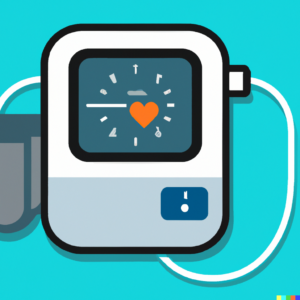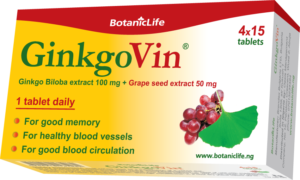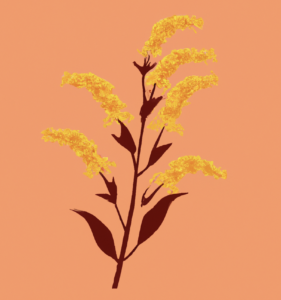⏰ Last Update: 14.08.2024
The heart pumps blood throughout the body, and the pressure created during this process is called blood pressure. Hypertension, or high blood pressure, occurs when artery walls experience constant excessive pressure.
The condition typically appears at age 45, as opposed to general blood pressure increase, which starts around 60. Untreated hypertension can lead to severe health issues, such as cardiovascular diseases, damage to micro blood vessels, vision loss, stroke, and kidney problems.

Diagnosis
People measure two types of blood pressure. Systolic pressure is the blood pressure when the heart contracts. Diastolic pressure is the blood pressure between heartbeats. If the blood pressure is measured to be 120/80, it means that the systolic pressure is 120 and the diastolic pressure is 80. High blood pressure is considered 140/90 or higher. Anyone whose blood pressure is 140/90 or higher for an extended period of time is considered to have high blood pressure (hypertension).
Blood pressure is generally divided into five categories:
- Hypotension or low blood pressure: systolic 90 or less, or diastolic 60 or less.
- Normal: systolic 90-119 and diastolic 60-79.
- Prehypertension: systolic 120-139 and diastolic 80-89.
- First degree hypertension: systolic 140-159 and diastolic 90-99.
- Second degree hypertension: systolic over 160 or diastolic over 100.
Diagnosing the condition typically requires multiple tests to ensure reliable results. The most common method involves using a blood pressure monitor, which could be a mercury or mechanical manometer or a digital device with electrical sensors. Retests may be necessary due to daily blood pressure fluctuations and temporary changes resulting from diet or stress. To confirm a hypertension diagnosis, doctors may request several measurements taken across different periods, usually within a week. If patients exhibit symptoms like frequent urination or abdominal pain, doctors might also conduct additional tests such as exercise tests, electrocardiograms, Holter monitoring, and echocardiograms to detect potential underlying heart or organ issues.
Causes of high blood pressure
One of the primary causes of hypertension is aging, as the risk of high blood pressure increases significantly with age. Hypertension causes can be classified into two categories: natural and secondary. While there’s no direct link between natural causes and specific agents, numerous risk factors are associated with hypertension. Age, family history, temperature, ethnic origin, weight gain, gender, immobility, smoking, alcohol intake, salt intake, high fat intake, mental stress, diabetes, and pregnancy all contribute to the likelihood of developing the condition. For instance, older men are more prone to hypertension, but this difference diminishes after age 60.
However, weight, smoking, salt, fats, and immobility are particularly significant risk factors.
Weight: Being overweight or obese narrows blood vessels, leading to high blood pressure and often additional cardiovascular issues.
Smoking: This habit constricts blood vessels and reduces oxygen in the blood, causing the heart to work harder and increasing blood pressure.
Salt: High salt intake is linked to increased blood pressure. Consuming no more than four grams of salt per day is recommended for maintaining healthy blood pressure levels.
Fats: The type of fat consumed affects hypertension risk. Plant-based fats, fish, and seafood are beneficial, while animal fats and trans fats found in processed foods are harmful.
Immobility: A sedentary lifestyle and lack of exercise increase the risk of high blood pressure. Regular physical activity improves blood circulation and oxygen enrichment, promoting healthier blood pressure levels.
Complications due to high blood pressure
If hypertension is not treated or controlled, the extra pressure on the arteries can cause damage to blood vessels as well as vital organs. The extent of the damage depends on two factors: the severity of the hypertension and the length of time without treatment. Some of the possible complications of high blood pressure are: stroke, heart attack and heart failure, blood clots, aneurysm, kidney problems, problems with blood circulation and blood vessels in the eyes, metabolic syndrome, brain and memory problems.
To monitor for complications, people with hypertension also undergo additional tests. Urine and blood sugar tests – they monitor cholesterol, potassium, and blood sugar levels. These tests can detect infections, kidney problems, etc. Protein or blood in the urine can be an indication of kidney damage. A high blood glucose level can be a sign of diabetes.
Treatment
Lifestyle
Lifestyle changes, including exercise, weight loss, and relaxation techniques, can significantly improve blood pressure. Adopting a healthy diet rich in fruits, vegetables, unrefined carbohydrates, and omega fats, while reducing salt intake, is also beneficial. It’s essential to moderate alcohol and caffeine consumption as well. To comprehensively support the cardiovascular system and normalize blood pressure, consider GinkgoVin, a dietary supplement. Ginkgo biloba extract is known for its positive effects on blood circulation, memory, and concentration, while grape seed extract enhances blood vessel strength. GinkgoVin combines these extracts to offer a comprehensive solution. Learn more about GinkgoVin at: https://botaniclife.ng/product/ginkovin/
Medications
There are various types of medication available to treat high blood pressure, including ACE inhibitors, calcium channel blockers, thiazide diuretics, beta blockers, and renin inhibitors. Doctors may suggest a combination of drugs for optimal results, but some people may be able to control their blood pressure through lifestyle changes alone. ACE inhibitors block the action of hormones such as angiotensin II, which can cause blood vessels to constrict, but they are not suitable for everyone. Calcium channel blockers reduce calcium in the blood vessels to relax the smooth muscle and widen the arteries, while thiazide diuretics work by affecting the kidneys to excrete sodium and water. Beta blockers are typically used only when other medications have failed and can have side effects such as fatigue, slow heart rate, and nausea. Renin inhibitors are a newer type of medication that reduces the production of renin, but their uses and dosages are still being determined. All medications have potential side effects, and patients should consult their doctors for advice.
Alternative methods
Medicines often have a bunch of unwanted side effects. In most cases, following a proper diet, active lifestyle and adding a food supplement such as GinkgoVin can lead to normalization of blood pressure.
You can learn more about GinkgoVin!
Conclusion
Hypertension, or high blood pressure, is a common health issue that can lead to severe complications if left untreated. The condition is often influenced by factors such as age, weight, smoking, salt and fat intake, and immobility. Early diagnosis and proper management, including lifestyle changes and medication, are crucial for maintaining overall health.
Adopting a healthy lifestyle, including regular exercise, a balanced diet, and stress reduction, can help improve blood pressure. GinkgoVin, a dietary supplement combining Ginkgo biloba and grape seed extracts, can provide comprehensive support for the cardiovascular system and aid in normalizing blood pressure. Ginkgo biloba extract is known for its positive effects on blood circulation, memory, and concentration, while grape seed extract strengthens blood vessels. To learn more about GinkgoVin and how it can contribute to your health, visit: https://botaniclife.ng/product/ginkovin/




